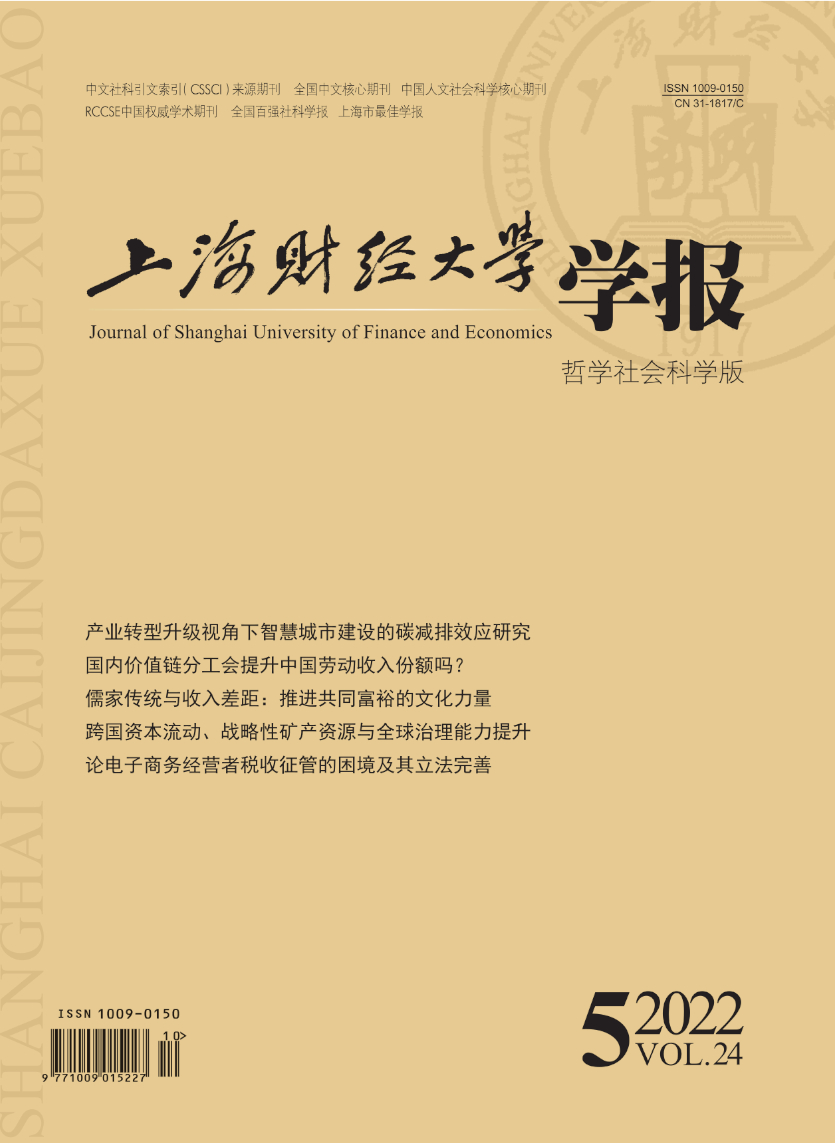The issue on decline of labor income share is greatly concerned by academic circles. Based on the combination of Chinese Industrial Enterprises database and World Input and Output database, this paper innovatively measures Domestic Value Chains (DVCs) from the city level, and studies the relationship between DVCs and labor income share. Different from decline of labor income share caused by GVCs, division of DVCs is conducive to the increase of labor income share. DVCs have the largest promotion effect on the labor income share of central and western cities. Since the division of labor in GVCs has largely replaced DVCs, the effect on the promotion of labor income share is not significant in eastern cities. The spatial auto-correlation of the DVC network in eastern cities is the strongest. When considering the spatial effect, the spillover effect and “reservoir” function of the DVC network will greatly increase the labor income share of its own city, and at the same time, the labor income share of other eastern cities will also be significantly increased. The spatial spillover effect is far higher than that of central and western cities. DVCs have the largest increase in the labor income share of state-owned enterprises. The reason is that DVCs are conducive to promoting competition and breaking the market monopoly of state-owned enterprises, which promotes them to make rational investment under the constraint of cost and income, and reduces the level of capital deepening to a certain extent. Next, this paper analyzes the influence mechanism of DVCs on labor income share from the following mechanisms such as employment absorption, technological progress, market competitiveness and industrial structure. DVCs extend the domestic production stage of intermediate products and accelerate labor absorption and the expansion of labor remuneration in the manufacturing process of intermediate products; DVCs reduce capital-biased technological progress and capital deepening in the short term, which benefits employment and the income share of low-skilled labor; DVCs promote market competitiveness and the division of labor, which is beneficial to the decline of monopoly profits and the reward of labor force; DVCs increase the share of service industry, accelerate the connecting of the domestic production stage in manufacturing industry, accelerate the blending of skilled labor and high-end service elements, and increase the value added of export and labor income share of enterprises. The relevant countermeasures are to accelerate the construction of DVCs, actively realize the nationalization of intermediate products and core technologies, strengthen the reform of state-owned enterprises, break monopoly, improve labor bargaining power, and reduce the adverse impact of factor distortion caused by GVCs on labor income share.
 / Journals / Journal of Shanghai University of Finance and Economics
/ Journals / Journal of Shanghai University of Finance and EconomicsJournal of Shanghai University of Finance and Economics
LiuYuanchun, Editor-in-Chief
ZhengChunrong, Vice Executive Editor-in-Chief
GuoChanglin YanJinqiang WangWenbin WuWenfang, Vice Editor-in-Chief
Will the Division of Domestic Value Chains Improve China’s Labor Income Share? Based on the Panel Data from 235 Cities
Journal of Shanghai University of Finance and Economics Vol. 24, Issue 05, pp. 33 - 50 (2022) DOI:10.16538/j.cnki.jsufe.2022.05.003
Summary
References
Summary
Cite this article
Gao Jing. Will the Division of Domestic Value Chains Improve China’s Labor Income Share? Based on the Panel Data from 235 Cities[J]. Journal of Shanghai University of Finance and Economics, 2022, 24(5): 33-50.
Export Citations as:
For
ISSUE COVER
RELATED ARTICLES




 4842
4842  5563
5563

